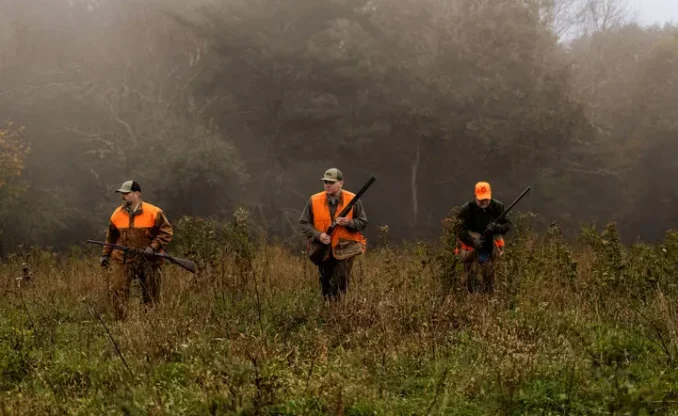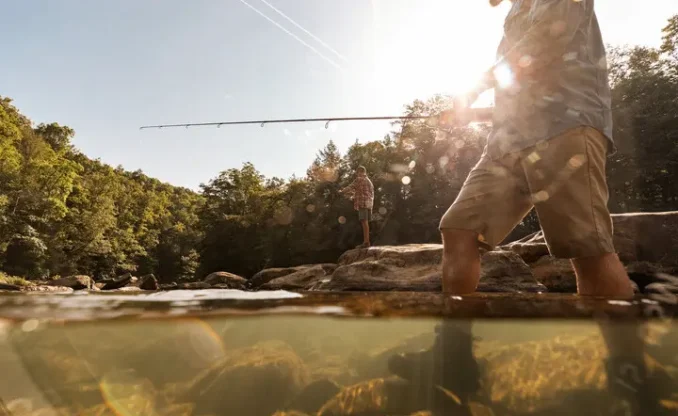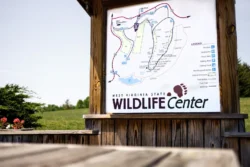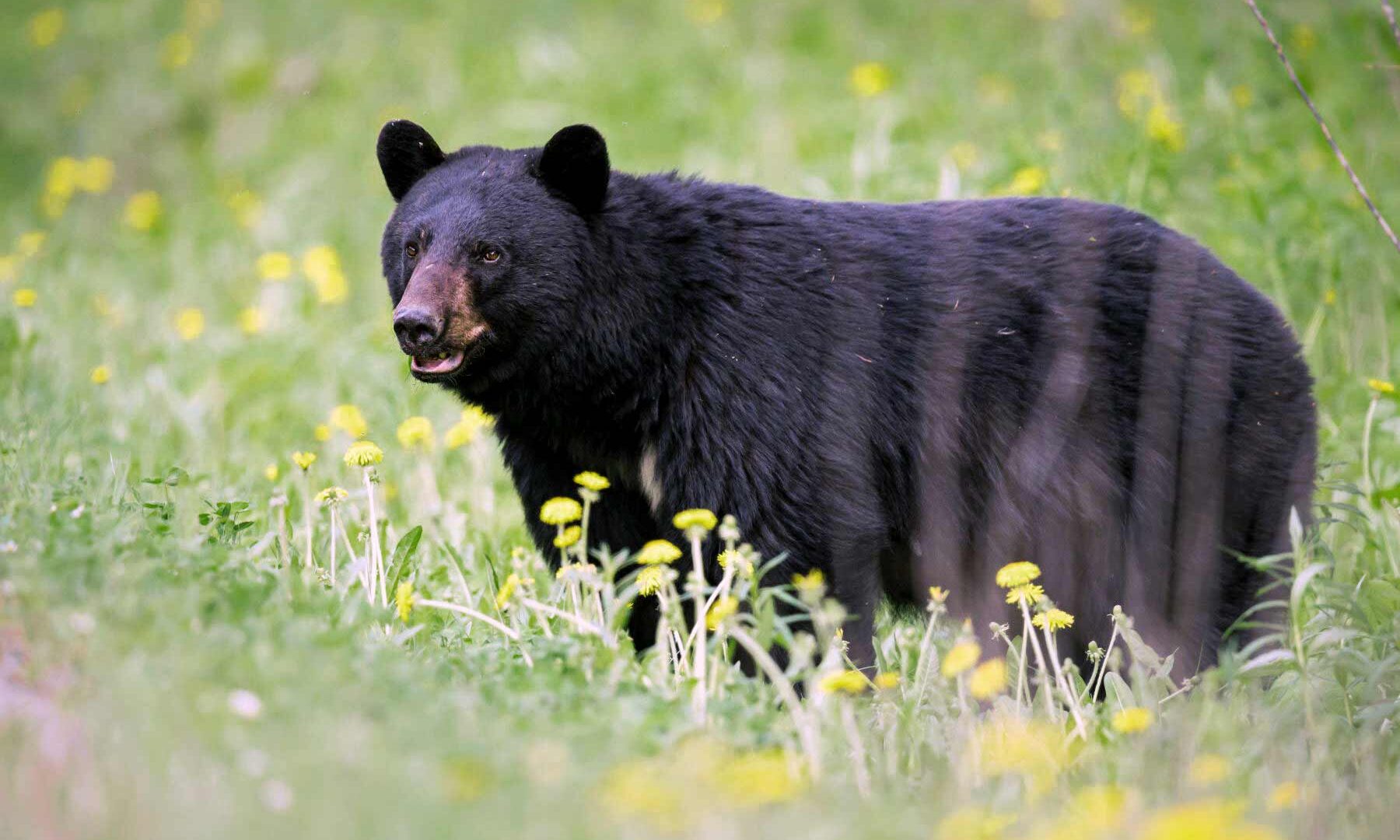Practical tips for protecting your home and living responsibly with black bears
Black bears are a beloved part of West Virginia’s cultural identity and a vital member of the state’s mountain and forest ecosystems. As the state animal, black bears symbolize West Virginia’s wild beauty and resilience. However, as their population expands and human activity continues to grow, encounters between people and black bears are becoming more common—especially when black bears are drawn to easy food sources. The good news is that most conflicts can be prevented. By learning a few basics, you can help keep black bears wild and communities safe.
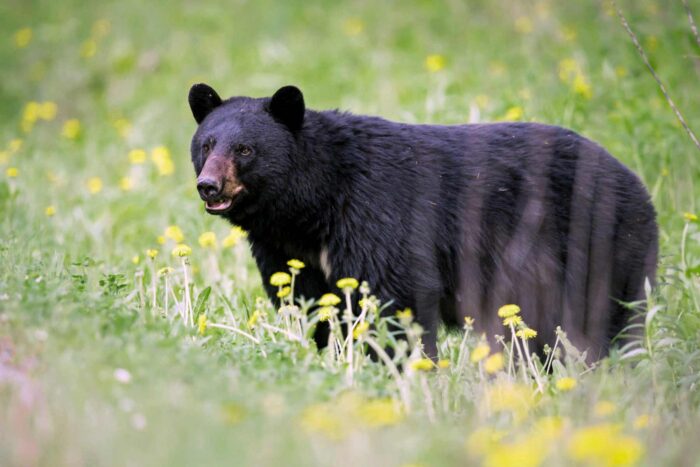
Understanding Bear Behavior
Black bear activity fluctuates yearly based on natural food production. This means that black bear activity occurs most frequently in May and June when bears emerge from their dens. Human-related food sources are typically much higher in calories than natural food sources and can be obtained far quicker, which is why black bears can be seen roaming parks, neighborhoods and other populated areas at this time of year.
While some natural black bear behaviors can cause conflict with humans, it’s important to know that black bears aren’t looking for trouble — they’re just usually on the lookout for their next meal. That’s why securing trash cans, bird feeders and other food sources around your property is the most important step in preventing black bear activity.
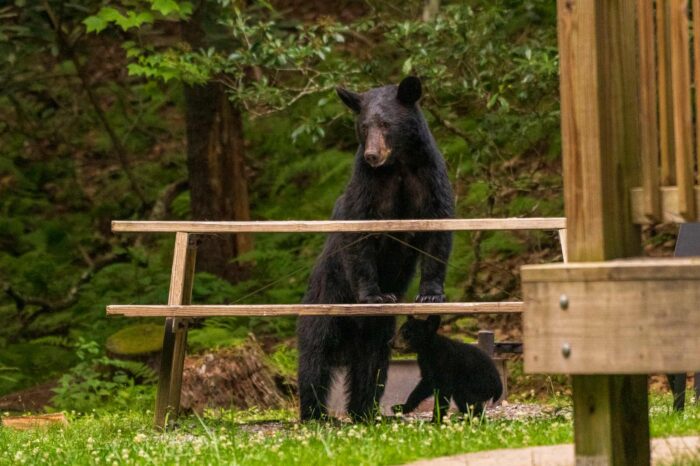
Tips for Preventing Human-Bear Conflicts
Black bears will eat almost anything, including garbage, bird seed, pet food, livestock feed, chickens and chicken feed, bee hives and fruit trees. Black bears that have access to human-related food for an extended period of time with no negative repercussions eventually lose their fear of humans. This often results in human-bear conflicts, and sometimes the unfortunate need to kill problem-causing bears.
If you have unsecured food sources on your property, the following action items will help you reduce human-bear conflicts:
- Take down bird feeders before mid-March.
- Store trash in a secure area until the morning of pickup.
- Remove pet food and bowls after feeding.
- Clean grills after each use and store them in a secure area.
Black bears can also cause problems at campsites, so make sure you store food and scented items in bear-proof containers or hang them 10 feet above ground and away from trees. If cooking, make sure you do so away from your tent and clean up thoroughly. Never store food, trash or scented items in your tent. And keep dogs leashed at all times.
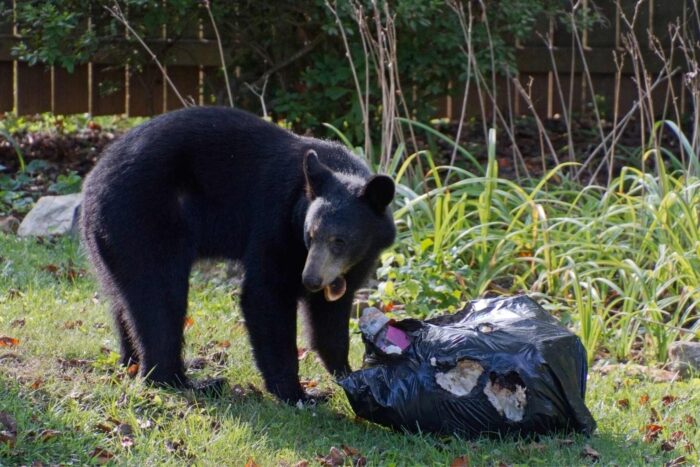
What to Do if You Encounter a Bear
If you do encounter a black bear, don’t approach it. Bears are naturally curious and likely are just looking for food, but they will defend themselves if you get too close to them. If you see a bear, stay calm and follow these steps:
- Give it space – Never approach a bear, even if it seems uninterested in you.
- Back away slowly – Running can trigger a chase instinct.
- Make yourself known – Wave your arms and shout, “Hey bear!”
- Use bear spray if necessary – If the bear keeps approaching, be ready.
- Fight back if attacked – In the rare case of a black bear attack, don’t play dead—fight aggressively.
If you see black bears in your neighborhood or find evidence of bear activity, alert your neighbors. Make sure they’re educated on how to avoid conflicts and know what to do if they encounter a black bear. The more people who learn about black bears, the better off we’ll all be.
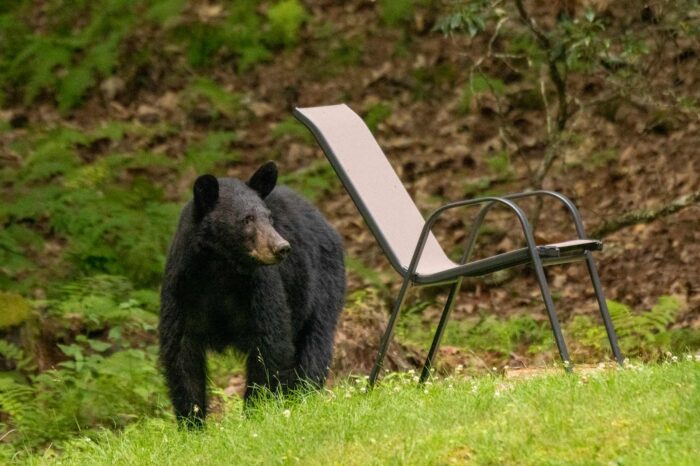
Help Protect West Virginia’s Black Bears
West Virginia’s black bears belong in the wild, not in your backyard. By making simple choices, you can help create a safer environment for both humans and black bears. So, clean up your property, secure your food and spread the word!

